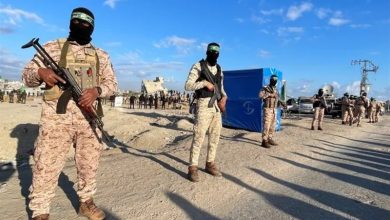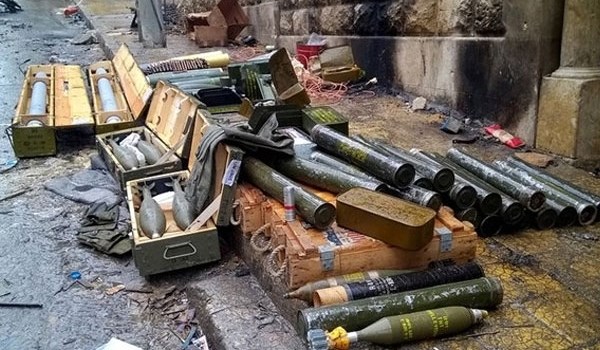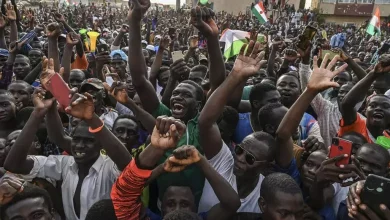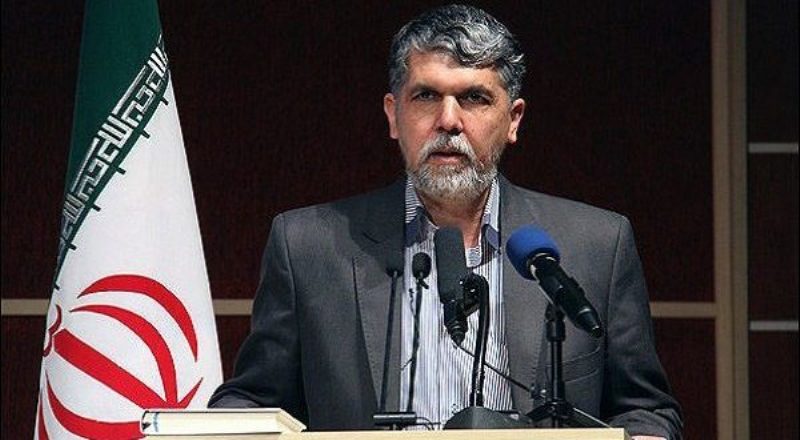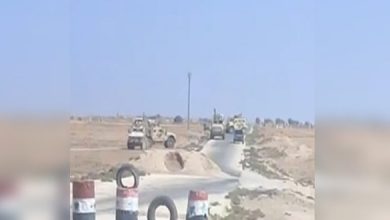Gaza ‘flour massacre’ textbook case of Israel’s war crimes and cover-ups
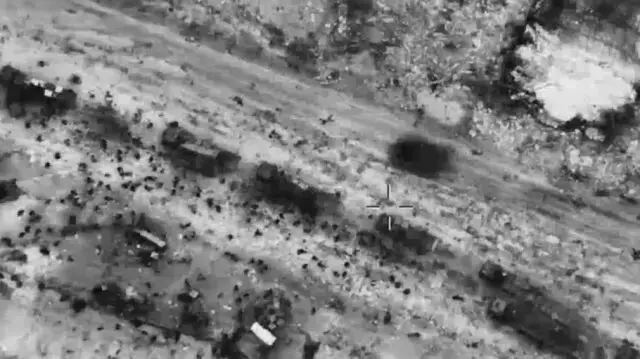
In the early hours of Thursday, in line with its genocidal war against Palestinians in the besieged Gaza Strip, Israeli troops opened indiscriminate fire on people waiting for food aid in the southwest of Gaza City.
At least 116 people were killed and more than 760 others injured in what rights groups described as a textbook case of cold-blooded massacre on the Al Rashid street that stretches along the coast of Gaza.
The regime denied involvement in the massacre that came nearly five months into the Israeli genocide in the besieged territory, which has so far claimed the lives of more than 30,400 Palestinians.
The flawed Israeli narrative kept changing and evolving throughout the day, designed to shift the blame on victims, the desperate aid-seekers who were there to get some flour.
The Israeli army claimed they had nothing to do with the incident and blamed a stampede for it. Later, they said trucks carrying aid had run over civilians. Finally, they admitted to having fired at the crowd, but “only targeting the militants trying to sabotage the aid delivery.”
A report by Yediout Aharonot said, “Dozens of Gazans died during a stampede as large crowds descended on humanitarian aid trucks entering northern Gaza, attempting to loot supplies and sparking violent clashes, the IDF reported on Thursday.”
“An initial IDF probe into the incident found that Palestinian gunmen fired at the aid trucks, with most fatalities resulting from trampling and crowding,” the report noted.
Another report by the Times of Israel said it “acknowledged that troops opened fire on several Gazans who moved toward soldiers and a tank at an IDF checkpoint, endangering soldiers, after they had rushed the last truck in the convoy further south.”
Reuters quoted an Israeli official as saying “there had been two incidents”, in one of which “dozens” were “trampled or run over” and in the second “some people” approached troops including a tank who “felt under threat and opened fire” in a “limited response”.
“The soldiers fired warning shots in the air and then fired towards those who posed a threat and did not move away,” Reuters quoted the official as saying.
“This is what we understand. We’re continuing to review the circumstances.”
In the broadest account, the Jerusalem Post, quoting Israeli army sources, said three incidents occurred.
The first one was the stampede that left most of the casualties, the second when the armed Palestinians fired on the trucks and stole supplies, and the third when a large group of Palestinians approached the Israeli forces nearby, who responded with live fire.
The Israeli newspaper, quoting its sources, claimed that “it was unclear if they had aggressive intentions or were civilians caught up in a chaotic moment.”
Later on Thursday, Israeli army spokesman Rear Admiral Daniel Hagari said the military had fired “a few warning shots” to try to disperse a “mob” who had “ambushed” the aid trucks.
“As these vital humanitarian supplies made their way toward Gazans in need, thousands of Gazans [rushed] the trucks, some began violently pushing and trampling other Gazans to death, looting the humanitarian supplies,” he said.
Some accounts identified those targeted as ordinary people and others identified them as “mob”.
For example, Israel’s far-right minister Itamar Ben Gvir said Israeli soldiers “acted excellently against a Gazan mob that tried to harm them”.
In some versions, the victims were said to have trampled each other and in others, the trucks were believed to have mowed down people.
Israeli regime spokesman Eylon Levy blamed “Gaza truck drivers” for the massacre.
In this age of technology, it is interesting that Israeli accounts are never consistent and the regime officials are always “reviewing” things and struggling to find simple answers.
The regime offered no evidence to back its claims. It released a 100-second, heavily edited drone video as proof, which showed aid seekers surrounding trucks, but no trampling or trucks running over people.
If the Israeli drones recorded the situation, why did the regime not publish the scenes showing the moment when people were “trampled” or “run over”?
Holes in Israeli story
However, the strategy of ‘cover-up’ didn’t work this time. There are several glaring holes in the Israeli version of the incident that demand unraveling.
How did Gazan truck drivers start to kill their own people? Why hasn’t this ever happened before?
Or, why did Israeli troops kill 10 unarmed, starved Palestinians who had approached them? What kind of threat did these people pose to armed-to-the-teeth soldiers and tanks?
And, how scores of people were trampled? In any case, who is to blame for the desperate humanitarian situation that this regime claims was the cause of the incident?
These holes are filled by the Palestinian witness accounts that present a different chain of events.
Palestinians say most of the people present at the scene fell victim to Israeli gunfire, and the stampede occurred only after the Israeli troops started indiscriminately firing at them.
Local journalist Khadeer Al Za’anoun, a reporter for the Palestinian news agency Wafa, who witnessed the incident, said the chaos and confusion were sparked after Israeli forces opened fire, which led to people being hit by aid trucks.
Al-Jazeera journalist Ismail al-Ghoul reported that Israeli tanks “advanced and ran over many of the dead and injured people.”
The acting director of the Al-Awda Hospital said they received 161 wounded patients, most of whom appeared to have been shot.
Also, an initial probe by the Euro-Med Human Rights Monitor showed that the Israeli army gunfire was responsible for most deaths in a massacre of Palestinian civilians.
In a follow-up report, the rights group confirmed the regime’s “full involvement” in the massacre at the Nabulsi roundabout, calling for an “effective international investigation to hold Israeli officials accountable.”
Its field team – present at the time of the incident – “documented Israeli tanks firing heavily towards Palestinian civilians while trying to receive humanitarian aid,” the report noted.
Trying to get away with another massacre
The incident has been widely condemned by governments and organizations. The United Nations Secretary-General Antonio Guterres called for an independent probe into the killing of civilians.
Iran slammed “the barbaric attack by the Zionist regime”. Iranian foreign ministry in a statement said “The wound of Gaza will not be erased from the memory of the free people of the world.”
China said it was “shocked” while Colombia said, “This is called genocide and recalls The Holocaust.”
Even European allies of Israel, including France and Italy, denounced the massacre. Josep Borrell, the EU’s top diplomat, described the incident as a “totally unacceptable carnage”.
It wasn’t the first massacre of Palestinians though. There have been massacres every day in the Gaza Strip since October 7.
On January 26, Gaza’s Health Ministry said Israeli fire struck a crowd of people waiting for humanitarian aid at a roundabout in Gaza City on Thursday, killing at least 20 and wounding 150.
The UN Office for the Coordination of Humanitarian Affairs said on February 4, “a group of people a group of people waiting for humanitarian aid trucks near Al Kuwaiti roundabout in southern Gaza City were reportedly fired at.”
Another report referred to the February 5 attack on an aid convoy at the same place, Al-Rashid Street. That attack forced the UN Agency for Palestinian Refugees to warn it could not carry out its mission and provide humanitarian relief if safety conditions were not met.
A day before the latest attack, on Wednesday, Wafa news agency reported that three Palestinians, who were waiting for aid near Gaza City, were killed after being hit by Israeli artillery fire on al-Rashid Street.
Israel has a long record of massacring Palestinians in cold blood and then trying to cover up their crimes and avoid accountability, say observers. A notable example is the Deir Yassin massacre in 1948 when at least 107 Palestinians were slaughtered by Zionists.
The bloodthirst of the child-murdering regime has only increased over the years.
